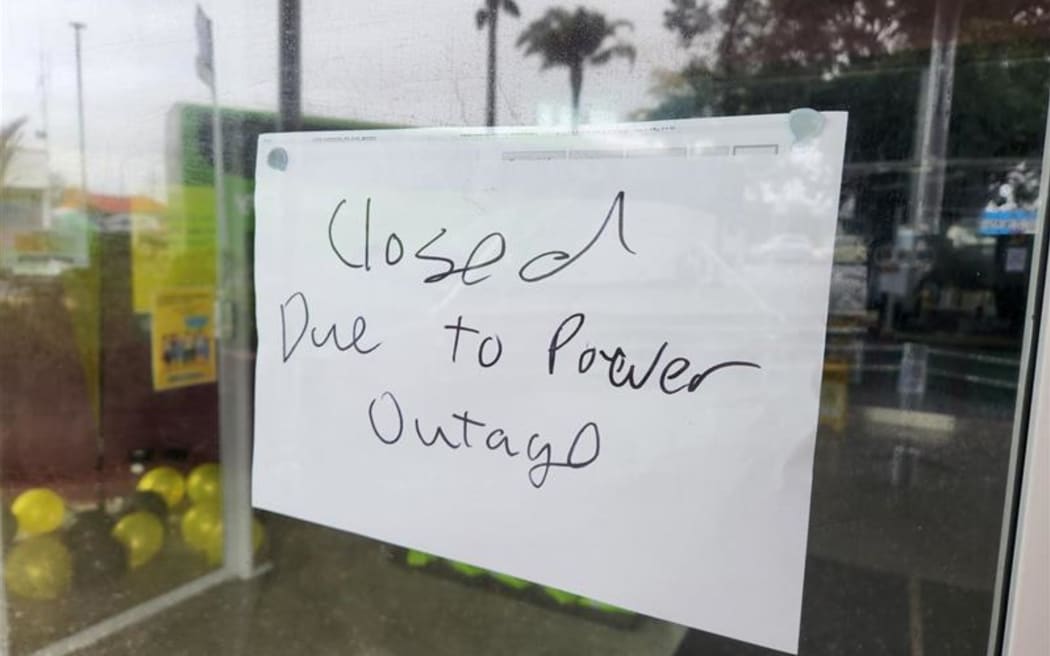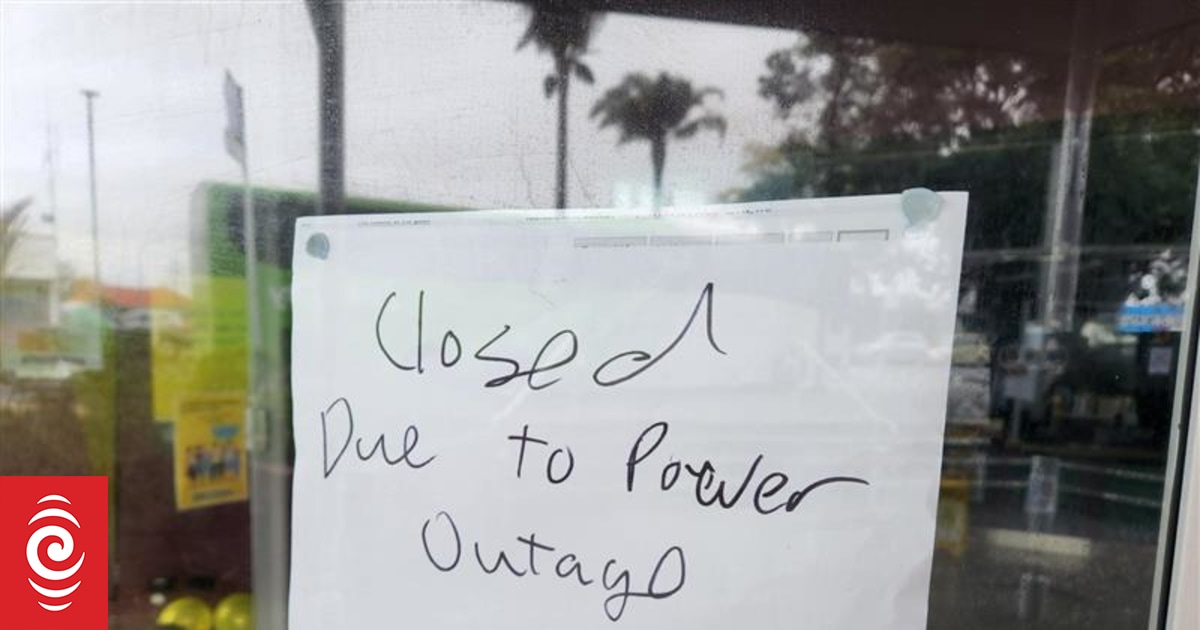
(file image)
Photo: RNZ / Peter de Graaf
Northland businesses are pushing for compensation from Transpower for last week’s blackout across most of the region.
On Monday, Transpower chief executive Alison Andrew confirmed the power pylon that fell last Thursday, cutting power to most of Northland, was caused by contractors carrying out routine maintenance.
The Consumer Guarantees Act entitles people to compensation, but it does not apply to businesses.
Local business association NorthChamber president Tim Robinson said they estimated businesses in the area had lost about $40 million to $60m due to the power outage, which Infometrics backed.
Infometrics chief executive Brad Olsen said the $60m estimate came from analysis of public estimates of the economic cost of the 1998 Auckland blackout, adjusted for inflation, economic differences between Auckland and Northland between 1998 and 2024, and other factors.
Robinson told Morning Report there were several factors for businesses to consider in making a claim with insurance, including losing the benefit having made no claims when signing on a new policy.
“When I sort of look at it for small businesses, if you’re talking anywhere between $1000 and say $5000 of direct loss, by the time you’ve submitted a claim and as I say you’ve used your excess and then you’re facing a probable policy cost increase in the next two to three years,” he said.
“It’s a zero sum game. It’s actually not worth lodging the claim.
“The question is will the insurance companies bother to litigate against Transpower given the, I guess, complex nature of what it will take to achieve that outcome, because certainly Transpower seemed to double down and said well, no, because it was work done by a contractor, well actually it’s not actually our responsibility and it’s actually covered by the Consumer Guarantees Act, which of course it’s not, as far as business is concerned.
“I’m guessing that their contractor probably has public liability insurance, which generally speaking is about $10m. I mean our challenge as a business is saying, well, okay, Transpower you’re actually now responsible for that dealt over and above whatever that cover is that the contractor holds.”
If Transpower did not plan to negotiate a compensation plan, they would have to consider a class action lawsuit, Robinson said.
“We know there’s empirical evidence that for some of those larger plants, it [the loss] is in the several hundreds of thousands of dollars.”
Some corporates kept their plants shut for longer, even after the power was restored, because it was still fragile, he said.
“So it wasn’t just a case of an afternoon of lost production. For some of them, it was three or four full days.
“For a lot of those large manufacturers, particularly the wood processing and so on, they’ve got large kilns and so on, which can sometimes take two days to restore to full production.”
Both Transpower and their maintenance contractor, Omexom, declined to speak on Morning Report.
In a media stand-up on Monday, Transpower chief executive Alison Andrew said it would follow the proper process in terms of compensation for those who lost power.
“Under the Consumer Guarantees Act, consumers can apply to their retailer for compensation. That all needs to be worked through and we will follow and work through with that,” Andrew said.
“It is very early days in this investigation, we will work through the process.”
Andrew would not be drawn on whether the retailers would then come to Transpower or its contractor Omexom to claim that money back.
Northland households have the right to compensation for items damaged during the lengthy outage.
Consumer NZ spokesperson Jessica Walker said under the Consumer Guarantees Act, supplied electricity must be safe and reliable.
Because the outage was caused by human error, it appeared that residential consumers had a strong case for compensation, but the law did not protect businesses, she said.




